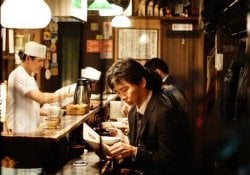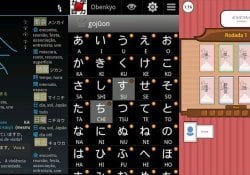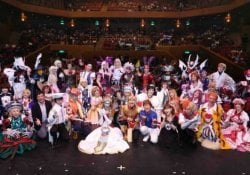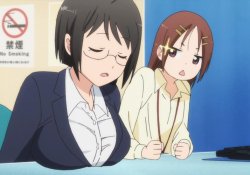We know that the Japanese language loves to have short words of just one syllable, but there are also long words that you didn't know existed. In this article, we are going to look at the longest words and ideograms in the Japanese language.
Japanese characters called kanji usually have one to three syllables in their reading. There are exceptions where an ideogram can have a very long Japanese reading. In addition to the readings, there is something called a definition, which is the meaning or translation of the ideogram, which can sometimes be as long as a sentence.
Now when it comes to words composed of several ideograms, they can reach exorbitant sizes. This is because Japanese words convey greater ideas than a simple foreign word. There is no space in the Japanese language, so some words only appear with the addition of others, just like in the German language.
Long Japanese words are written play [長大語].
Yojijukugo - 4 ideogram words
It's not the longest Japanese word, but we can cite a giant list of Japanese words, mostly onomatopoeias and duplicates that are categorized in Japanese as yojijukugo [四字熟語] which literally means word made up of four characters.
These words are often used as hitorihitori or mechakucha, some can have 8 syllables and 16 roman letters when converted. They are not giant words, but it is interesting to know that they are given a category.
You will hardly find Japanese words and expressions with more than 5 characters that are not a combination of words that can be decomposed to form other words. Although all can be decomposed lol.
Longer Kanji and Ideograms in Japanese
Usually a kanji has only one or two syllables. Rarely will a Japanese ideogram or kanji have more than 4 syllables. Now let's change this concept by presenting some ideograms that exceed 4 syllables in pronunciation.
Ideograms can have multiple readings, so some Japanese might end up inventing infinite readings for certain ideograms. Now let's see ideograms with long readings, but which are common and used in Japanese daily life.
Responsive Table: Scroll the table sideways with your finger >>
| Kanji | Reading | Meaning |
| 詔 | mikotonori | imperial edict |
| 志 | kokorozashi | intention, goodness, will |
| 政 | matsurigote | rules, government |
| 粉 | deshimeetoru | Decimeter |
| 忙 | ureerusama | busy, restless |
| 奻 | iiaresou | fight, argument |
When dealing with ideograms with a long definition we have [孒] which can be read as hidarinoudeganai which means I don't have a left arm. Another ideogram is [砉] which can be defined as honetokawatogahanareruoto.
I couldn't find or write the ideogram on the computer or internet, but I know that the biggest ideogram has a total of 62 letters and 33 syllables and is pronounced monokagekarakyuunitobidashitehitowoodorokaserutokinihassurukoe.
Another Japanese ideogram can be read with 37 letters and 18 syllables and is pronounced: toragahitowokamoutosurutokinounarigoe. Both of these two words refer to a reaction of surprise that makes one jump at the hearing of a voice from a lion or shadow.
If anyone can write these ideograms, let me know. The second word is written as follows: [⺮] over [將]. I tried, I got it, but I couldn't write the ideogram which is probably obsolete.
The longest words in the Japanese language
The longest named mountain in Japan is 牛奥ノ雁ケ腹摺山(うしおくのがんがはらすりやま)
The longest named temple in Japan is called 三図河頭極楽東門蓮華台上阿弥陀坊太平埜山本実成院長福寿寺
There is a hill on New Zealand called タウマタファカタンギハンガコアウアウオタマテアポカイフェヌアキタナタフ [Taumatawhaakatangihangakoauonaupiotamateaturataukai when].
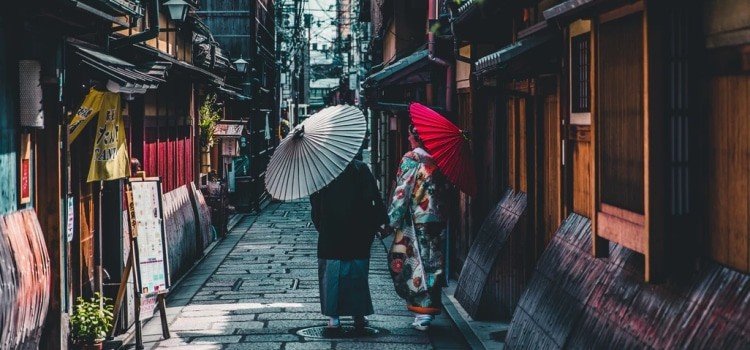
The longest god name in Japan is アメニキシクニニキシアマツヒコヒコホノニニギノミコト
The longest named train station in Japan is 南阿蘇水の生まれる里白水高原駅 [minamiasomizunoumarerusatohakusuikōgen'eki]
There is a character in Rakugo called じゅげむじゅげむごこうのきれかいじゃりすいぎょのすいぎょうんらいまつふうらいまつくうねるにすむやぶらこうじのぱいぽぱいぽのしゅりんががんしゅんしゅりんがんのぐぐぐぐりんだいのぽんぽこぴぽんぽこぴののーーーちょうきゅうめいのちょうすけ.
The article is still halfway through, but we recommend also reading:
The longest JAPANESE word comes from Portuguese
Did you know that one of the biggest words in the Japanese language actually comes from the Portuguese language? Yes, they use the same technical term for a lung disease caused by breathing in 46-letter volcanic ash which is:
- pneumoultramicroscopicsilicovulcanoconiotic
In Japanese the word has 33 syllables or kanas in a total of 60 romanized characters. See the word below:
- ニューモノウルトラマイクロスコーピックシリコヴォルケーノコニオシス
- Nyuumonourutoramaikurosukoopikkushirikovuuorukeenokonioshisu
It even makes sense, since Japan is a country with many volcanoes, probably the word is much more used than in English. Did you have any idea of that word? Hope you enjoyed the article! We appreciate the comments and shares.
The infinite flexibility of the Japanese language
It is not wrong to elongate a verb or expression by repeating its conjugation. Someone could write, for example: 食べられられられられられられられられ...られる, or おいしくなくなくなくなくなくなくなく...ない to create some effect in the expression.
The Japanese language is very flexible when it comes to word formation. There is no space in the Japanese language, words are most often classified when they are between particles and verbs.
Often a dictionary ends up putting entire expressions as a single word. Do you remember another gigantic Japanese word to share with us? Thanks for the comments and shares, I hope you enjoyed the article.

